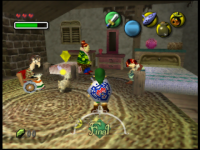No.630738
File: 1725163229103.png (372.63 KB, 1920x1440, Legend of Zelda, The - Maj….png)

I don't know who any of these vtubers are, I feel like an old man not keeping up with what's hip with the kids
Did you know they banned that episode of Spongebob with the panty raid? The are you feeling it now Mr.Krabs one